From November 21 to 23, 2024, the large-scale event “Ukrainian Open Science Forum” (UOSF) occurred at Lviv Polytechnic National University (https://www.facebook.com/theuosf).
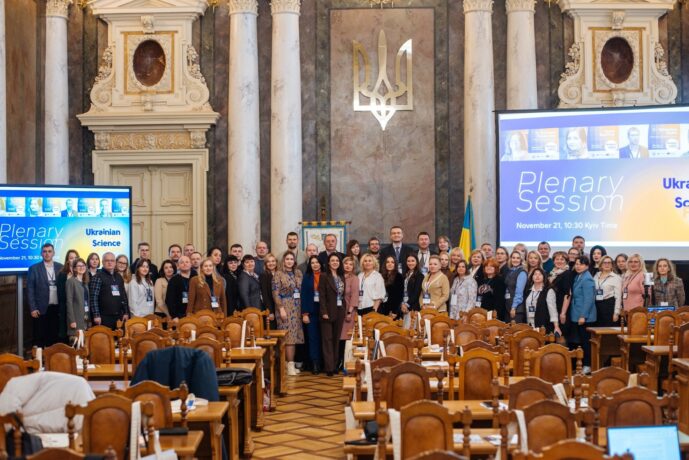
This forum served as a platform to discuss key trends in the development of scientific ecosystems in the European Union, the United Kingdom, the United States, and other countries, as well as their significance for Ukraine’s education, science, and innovation systems.
The event marked the conclusion of the Erasmus+ CBHE Optima project. It focused on topics such as open science, academic integrity, the reform of research evaluation following CoARA principles, reproducibility, and the impact of these processes on the academic environment and society at large. Participants were welcomed by Svitlana Shytikova, the head and coordinator of the National Erasmus+ Office in Ukraine.
The forum was co-organized by several leading Ukrainian and international institutions, including Lviv Polytechnic National University, Sumy State University, Vasyl Stus Donetsk National University, Lutsk National Technical University, the National Antarctic Scientific Center, Graz University of Technology, Wroclaw University of Science and Technology, Côte d’Azur University, and others. Partners included the Institute of Open Science and Innovation, the Young Scientists Council under the Ministry of Education and Science of Ukraine, the Eurodoc organization, Stichting eIFL.net, and members of the Erasmus+ CBHE OPEN4UA consortium, which succeeded the Optima project. Professor Oksana Shevchuk represented Ternopil National Medical University.
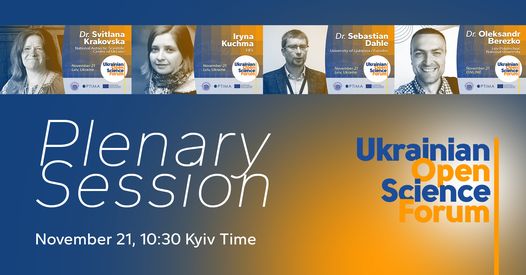
The plenary session on the first day included online participation from Dr. Lidia Borrell-Damian, Director of Science Europe; Tony Ross-Hellauer and Eva Kormann from Graz University of Technology (Austria); Dr. Pil Maria Saugmann, President of Eurodoc; Dr. Brian Nosek from the Center for Open Science (USA); Dr. Giulia Malaguarnera from OpenAIRE; and Dr. Natalia Timus from Côte d’Azur University (France).
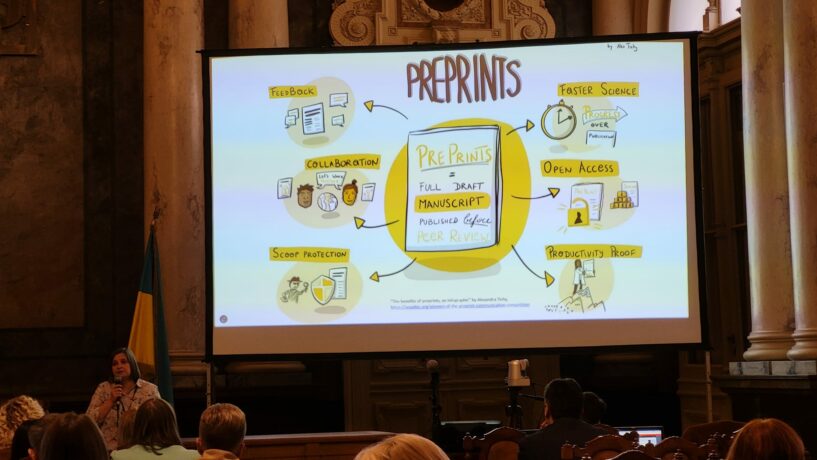
For those interested, the detailed program is available at: https://bit.ly/4fPG3qB.
The 11th International Youth Scientific Forum, “Litteris et Artibus,” was held in parallel with the Ukrainian Open Science Forum. Additionally, the inaugural meeting of the Ukrainian Reproducibility Network (UARN) took place with personal support from Prof. Marcus Munafò of the University of Bristol (UK), a co-founder of the UK Reproducibility Network (UKRN).
The forum featured panel discussions addressing the regulatory framework for academic integrity, implementing open science principles, and evaluating research activities in Ukraine and abroad. Despite air raid alerts, discussions, networking, and meetings successfully continued in the shelters of Lviv Polytechnic.
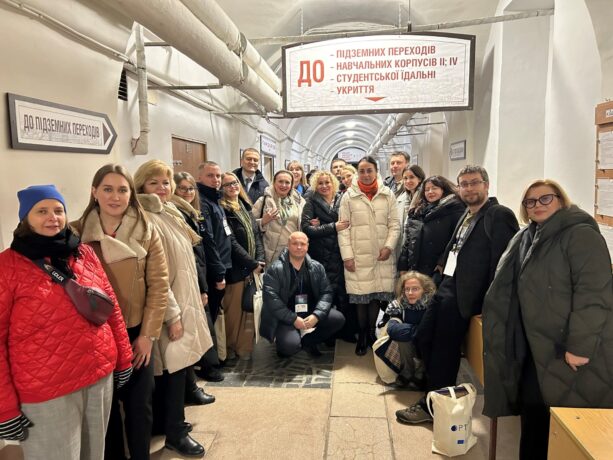
One of the key panel sessions involved Andriy Butenko, head of the National Agency for Higher Education Quality Assurance (NAQA), on the topic: “Issues of Regulatory Framework for Academic Integrity: Positive and Negative Cases of Identifying Academic Misconduct – Methods, Principles, and Technologies.” NAQA is a partner of the OPTIMA project.
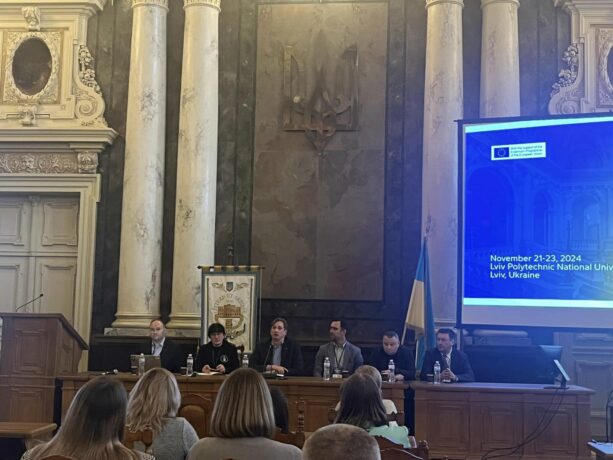
Open science, based on open access to research results and collaboration between scientists and society, is implemented through information and communication technologies. It is a cornerstone of the European Union’s strategic vision and an effective tool for rebuilding Ukraine’s war-damaged scientific systems. One of the forum’s main goals was to promote the integration of the Ukrainian scientific community into the global research landscape.
